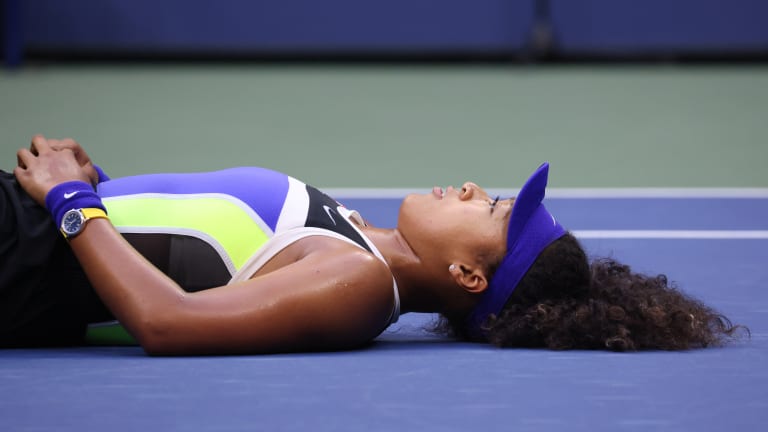Naomi Osaka frequently refers to herself as a vessel throughout her eponymous Netflix docuseries, which debuted on the streaming service Friday. It’s the thesis of her opening narration, suggesting she began playing tennis too early in life for it to be something she chose completely for herself. It’s how she describes her relationship to older sister Mari, a former fellow player turned artist who happily takes the former No. 1 for her fashion muse.
The descriptor comes up a final time in footage of her post-match press conference at the 2020 Australian Open, a way to compound her disappointment at failing to defend her title by thinking of the hard work then-new coach Wim Fissette—along with the rest of her team—put into her.
“We came here to win the tournament,” she says quietly, “And I wasn't able to do, like, what I was supposed to do.”
Naomi Osaka, too, is a vessel. Spanning three episodes and directed by Garrett Bradley, the docuseries is beautifully shot and stylistically executed, featuring numerous clips of a young Osaka honing her game on public courts. Conceived in an era where the soft-focus documentary has become a pop culture rite of passage, the series itself is, too often, at the mercy of what an otherwise demonstrably complex Osaka is willing to share—the sum of which is, unfortunately, not much more than many already know.
